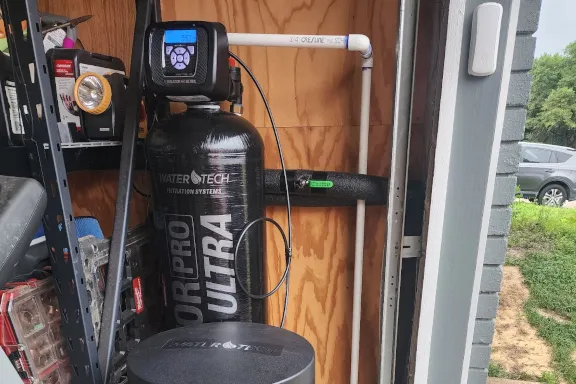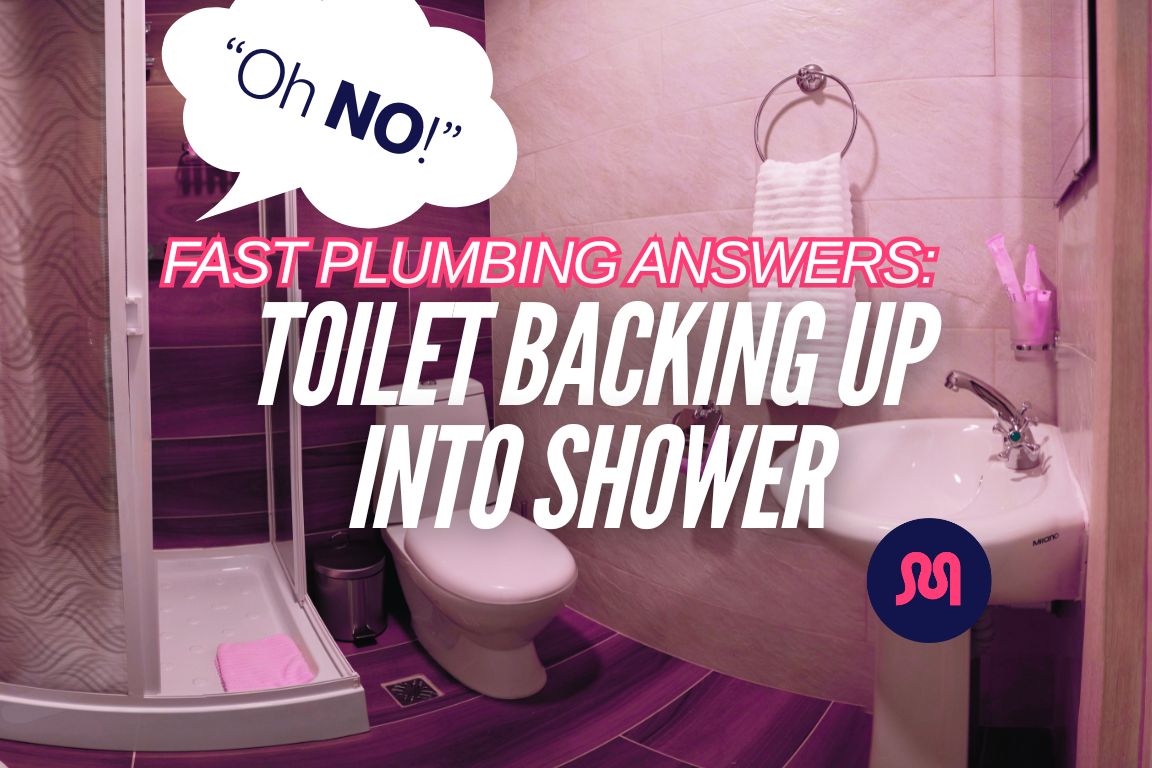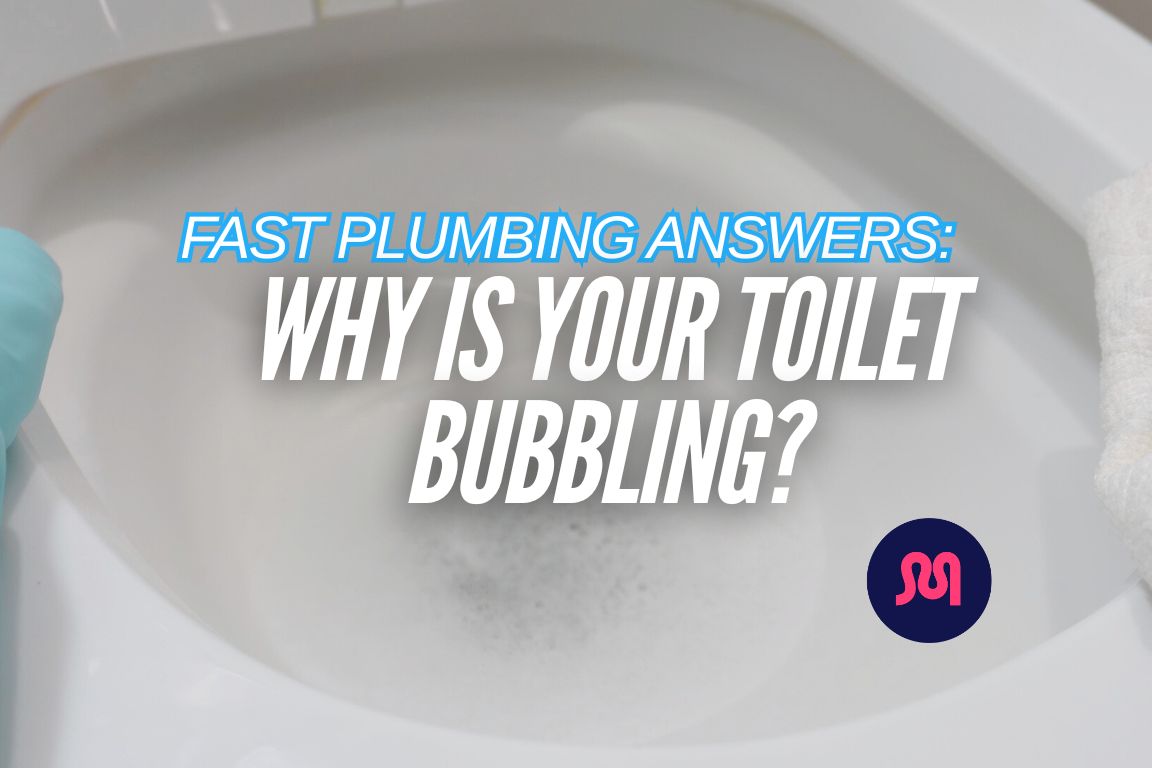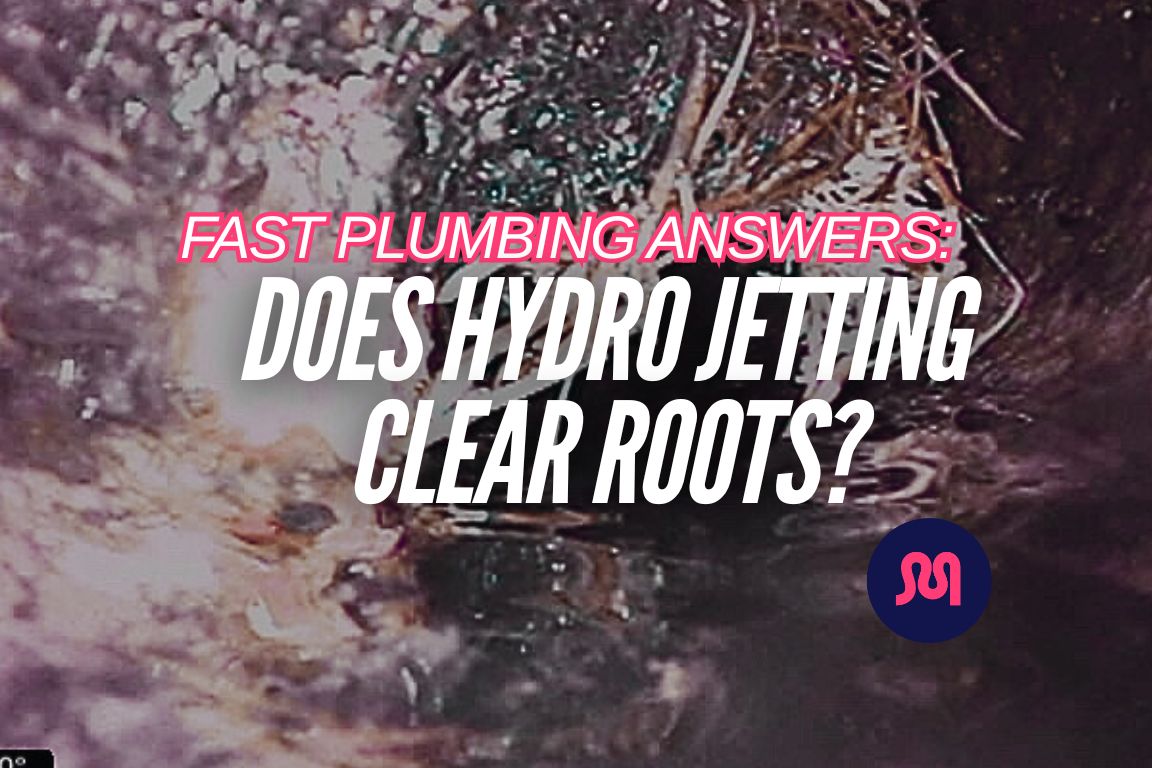Water Conditioner vs Water Softener: What's Best For You?
-(1).jpeg)
table of contents
table of contents
Water conditioner vs water softener: what’s the difference between these home water filtration options? You’re reading this article because you need your water softened or conditioned — but how do you know which option is best for your home?
Mother Modern Plumbing offers expert installation of home water softeners and water conditioners to Dallas-Fort Worth customers. If you need assistance making a water treatment purchasing decision, or need expert water softener or conditioner installation in DFW, call us.
Use this helpful guide to decide whether a water softener or conditioner is right for you — or if you want a product that combines their best features.
{{whole-home-water-softener-installation="/services/whole-home-water-softener-installation"}}
How Does a Water Conditioner Work?

Water conditioners change the chemical properties of hard minerals in your water supply, like calcium and magnesium. There are still dissolved minerals in your conditioned water, but their ions are altered to reduce scaling in your pipes and plumbing fixtures.
After conditioning, your drinking water still provides the health benefits of calcium and magnesium without sticking to the inner walls of your pipes or scaling on your shower heads and faucets.
Check out our updated article below for a deeper dive on water conditioners, how they function, and their various types of water filters.
{{what-is-a-water-conditioner-and-what-are-the-benefits="/blogs/what-is-a-water-conditioner-and-what-are-the-benefits"}}
How Does a Whole Home Water Softener Work?
Unlike water conditioners, water softening systems are designed to remove hard minerals from your tap water completely. Hard water enters a softening tank filled with resin beads that attract magnesium and calcium ions.
These resin beads pull hard mineral ions away from their atoms and replace them with sodium ions. This process delivers clean water to your taps and faucets and effectively removes calcium buildup and mineral deposits from your pipes and fixtures.
Take a deeper dive into the water softener brands we install and how they work to deliver softened water to your home.
{{best-water-softener-brands="/blogs/best-water-softener-brands"}}
Water Conditioner vs Water Softener: Key Differences

Water conditioners alter the way minerals travel through your water, while a water softener system removes hard minerals altogether. Water conditioners and water softeners also differ in salt use, their maintenance needs, and their effect on the local environment.
There are 5 key differences between water conditioners and water softeners:
- Hard mineral interaction
- Use of salt
- Environmental impact
- Maintenance requirements
- Overall water quality
Here’s an overview of how these water treatment systems compare across all five categories — we’ll provide further analysis below.
Water conditioning vs softening: hard mineral interaction
Water softeners replace calcium and magnesium ions in your water supply with sodium ions. This effectively removes hard minerals from water before it enters your drinking water system.
Water conditioners alter the chemical composition of hard minerals in water. For example, template-assisted crystallization filters (TAC filters) force hard mineral ions to crystallize. This reduces their ability to stick to your pipe walls and cause scaling issues.
Water conditioning vs softening: use of salt
The term “salt free water softener” is usually an advertising myth. Virtually all home water softeners use salt in their ion exchange process — a select few products use potassium chloride instead. Check the manufacturer’s guide of your specific product, or ask our expert plumbers for guidance.
By contrast, salt free water conditioner systems don’t use salt to function. They focus on transforming the chemical structure of calcium and magnesium, not removing it from your hard water. Salt isn’t needed to accomplish this goal.
The salt free water conditioning process has pros and cons. While it doesn’t create wastewater runoff, it’s generally considered less effective at scale reduction than water softening.
Water conditioners vs softeners: environmental impact
Home water softeners create wastewater as they deliver softened water, in the form of salt discharge. This wastewater is created during your water softener’s regeneration process — usually once every 4 to 7 days.
Every water softener regeneration cycle produces roughly 40 to 150 gallons of wastewater. This can have an impact on your local ecosystem, groundwater and septic system.
If you’re going to install a water softener, it’s worth spending a bit more. Higher-end systems generate less wastewater and require less maintenance and regeneration effort.
Water conditioners are widely considered to have a lower environmental impact than softening systems. The lack of salt in conditioned water means no salt discharge or wastewater runoff.
Water conditioners vs water softeners: maintenance needs
While water conditioners generally require less regular maintenance than water softeners, both systems have their own unique needs for upkeep.
Here are the basic maintenance needs of a water conditioner:
- Filter exchange: Replace your water conditioning filter once every 8-12 months for optimal performance. If your water supply is high in sediment or other contaminants, change your filter every 6-8 months. (This is usually a TAC filter.)
- Cleaning: Infrequent cleaning helps rid your water conditioning system of buildup and debris. This can usually be done with mild detergent and water.
- Tune-up: Schedule an annual tune-up with our plumbing experts to ensure efficient water conditioner performance.
- Inspection: We recommend water conditioner inspections in tandem with your annual tune-up. If your system operates well with no issues, inspections may be scheduled less frequently (every 18-24 months).
These are the basic maintenance needs of a home water softener:
- Salt level checks: Conduct regular salt level checks once per month to ensure the level is at least half full in your brine tank. Only use the type of salt recommended by the manufacturer — other types may create system clogs.
- Brine tank cleaning: Drain and scrub the inside of your brine tank with mild detergent and water every 8-12 months. Refill the tank with salt and water afterwards.
- Resin bed cleaning: Use an approved water softener resin cleaner to clean the resin bed of your tank every 8-12 months. Run a regeneration cycle after cleaning to remove impurities from the resin bed.
- Resin bead exchange: There are usually no removable filters in a water softener. Resin bead replacement is a rare occurrence — schedule this every 5-10 years.
- Sediment filter exchange*: If your water softener has an added sediment filter for pre-treatment, exchange this filter every 4-6 months.
Water conditioning vs softening: overall water quality
Both water conditioners and water softeners improve the overall quality of your water, but in different ways.
Water softeners deliver softened water to your taps and faucets — hard minerals are removed. This process does not generally change the taste or smell of your tap water, and it removes any beneficial effects of calcium and magnesium in your drinking water.
Water conditioners keep calcium and magnesium in your drinking water, which may increase its overall health benefits. Some water conditioning systems improve the overall taste of your water and remove metallic odors.
Do not expect either water conditioners or softeners to remove lead, nitrates, pesticides, herbicides or volatile organic compounds (VOCs) from your water — unless they are part of a greater water filtration system specifically designed to remove these contaminants.
Water Conditioners vs Water Softeners: Average Cost
It is generally more expensive to purchase a whole home water softening system than it is to buy a water conditioning system.
The price range of home water softeners is $500-$4,000+, while average home water conditioner prices range from $400-$1,500.
Purchase prices are affected by the overall size and capacity of your water treatment system, as well as the specific type of filtration technology used.
Water Conditioner vs Water Softener: Homeowner Savings
The average water softening system saves homeowners more money per year than a water conditioner. This is due to water softeners’ increased potential to reduce scaling and mineral buildup in your pipes, faucets and fixtures.
The average home water softener saves homeowners $1,550 per year in reduced plumbing repairs, lower maintenance costs, greater appliance efficiency, and reduced spending on cleaning supplies and detergent.
{{home-water-softener-savings="/blogs/home-water-softener-savings"}}
Can I Install a Water Conditioner and Water Softener?

Mother Modern Plumbing prefers water treatment solutions that combine the best aspects of water conditioners, water softeners and whole house water filtration systems.
We are certified and trained to install WaterTech products. Here’s why we like their product lines:
WaterTech Infinity whole home water treatment
WaterTech’s Infinity series adds a bonus layer of protection by reducing lead in the incoming water supply. WaterTech products are tested and certified by IAPMO, the SCC and ANAB for efficiency, sediment and contaminant removal.
WaterTech Infinity Protector removes the following from your tap water:
- Lead
- Cysts (giardia, crypto)
- PFAS (forever chemicals)
- VOCs
- Chlorine
- Chloramines
- Trihalomethane
- Pharmaceuticals
The Infinity series also delivers softened water to your taps and faucets.
Water Conditioner vs Water Softener: Got More Questions?
Mother Modern Plumbing believes consumer education is the key to making the best water treatment decision for your home.
Our expert plumbers are here to walk you through the decision process between water conditioners and water softeners. What’s best for your home? What pros and cons matter to you? And would you benefit from a water filtration system that combines their benefits?
Reach out and talk to Mother — we’re committed to delivering healthy, clean water to you and your family.
{{whole-home-water-softener-installation="/services/whole-home-water-softener-installation"}}




